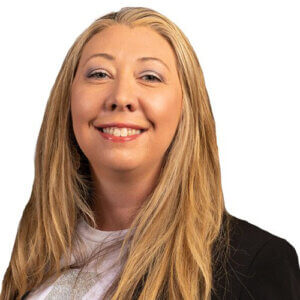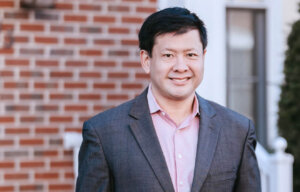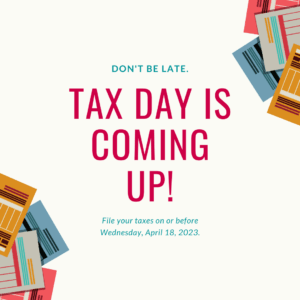Being Frugal Is for Everyone: How the Frugalwoods Can Inspire You
You don’t have to be a fan of extreme frugality to have heard of Elizabeth and Nate Thames and probably to have an opinion about the simple-living lifestyle they tout.
The Thames are “The Frugalwoods,” the couple who chucked modern consumerism to embrace radical penny-pinching, retreating to the Vermont woods to become modern-day versions of Henry David Thoreau.
Along the way, they became the poster couple for FIRE – Financial Independence and Retire Early – a movement gaining popularity (and critics) among Millennials who don’t want to wait until they’re 65 to stop working.
The big prize for the Thames’ extreme attention to personal finance: They achieved financial independence and now enjoy semi-retirement, while only in their mid-30s.
And they believe that is achievable for anyone. Even you. Even me.
Released in March, their slender tome with the uneconomical name — “Meet the Frugalwoods: Achieving Financial Independence Through Simple Living” — landed them prominent media interviews, sparking, inevitably, a heated debate over the truth of the Thames’ success.
The gist of critics’ assessment, as summarized by TheOutline.com: “The Frugalwoods made a name for themselves teaching millennials how to save money. Trouble is, you have to start with a lot of it.”
It’s true they graduated college debt-free, and also were doing sufficiently well in their careers (she as a fundraiser for nonprofits, he as a software engineer) that they were saving 40% of their income while living in pricy Cambridge, Mass.
But those are distractions from a larger truth that should appeal to anyone with above-subsistence-level earnings harboring dreams of becoming financially independent and retiring early.
How to get there is the question.
Get Rich Quick Schemes Will Not Help You Retire Early
Striking it rich packs enduring allure. Early retirement via windfall is what drives PowerBall jackpots into the stratosphere. It is what fueled the real estate bubble that brought ruin in 2008; boosted swindlers who sold Florida swampland 100 years ago; triggered California’s gold rush; and, long before that, ruined speculators during Holland’s 17th century tulip mania.
Then there are those highly-compensated bloggers, including the Frugalwoods and Mr. Money Mustache, who stress squeezing every last cent, until you are saving between half and three quarters of your income.
Their advice? Forgo eating out, forever. Sell your car, but don’t spend on public transportation; ride a bicycle — everywhere. Thinking of having a pet? Forget it; you don’t need an extra mouth to feed, and veterinary bills can devastate your thrift scheme.
Harsh, right? And we haven’t even mentioned the guy who saved $14,000 in nine months in part by crashing behind his friends’ couch.
There are more ways to achieve FIRE status than going on a diet of starvation, drudgery, and denial. As has been said of the key Rust Belt voters who put Donald Trump in the White House, the preachers of extreme frugality should be taken seriously, not literally.
Budget Your Way to Financial Health
No matter what your endgame, superior financial health begins with establishing and following a budget. Know what’s coming in. Know what’s going out.
Critical to your financial success, to getting you on the road to FIRE, is knowing your money leaks. Track your spending, looking for purchases that add little or no value to your life. Those are financial holes, which drain away your ability to save and invest and demand plugging.
Consider getting an app that tracks spending, or using a free online service such as mint.com. You may discover something useful about yourself.
Question Your Spending Habits:
- Do you habitually opt for a steak, when a simple hamburger will do?
- Do you arrive hungry to the multiplex theatre, and overpay for sliders?
- Do you buy premium gas when your car will run fine on regular?
- Are you losing Titleist Pro VIs when you’re really more of a Wilson Staff or Top-Flite level golfer?
- When’s the last time you reviewed your insurance needs or shopped for a better deal?
- Do you lack thermostat discipline?
- Do your sprinklers run during your region’s rainy season?
- Is your mortgage interest rate as low as it could be?
- Are you paying off far more car, truck or SUV than you need?
Drip, drip, drip.
Could you be more frugal than you are? Does the frugality wrench, even one that’s not the lock-down version, have a place in your financial toolbox? You know the answers.
Every dime you don’t spend unproductively is a dime you can (and should) put toward reducing debt (consult with a nonprofit credit counseling agency to get super-organized on that front), investing in your education (to land a better-paying career), and/or dropping into any number of modest, reliable financial vehicles (based in your tolerance for risk).
Plot a Course to the Land of Critical Mass
Financial independence, what Moneytalk’s Bob Brinker calls the “Land of Critical Mass” — having enough money saved and invested that work becomes optional — depends, largely, on what you (and your partner, if you’re a family person) consider a satisfying lifestyle. In other words, how much you need to stash depends significantly on how much you spend.
That will be true while you’re earning, saving, and investing your way to FIRE, and even more so once you have achieved the Land of Critical Mass.
See that? You’re in control.
Another way you can command your future is by making more of your present. The gig economy is here to stay, and that’s good news for everyone with marketable skills — or merely reliable transportation — time on their hands, and a desire to enhance their bottom lines.
Check out the freelance markets online, via Upward, Fiverr, TaskRabbit, or simply enter “freelance” and your skill(s) into your favorite search engine.
Also, now that the nation’s economy is humming along at full employment, do not dismiss the opportunities to be mined in traditional part-time jobs. Moreover, with companies wanting to expand but straining to find qualified employees, now might be the time to brush up your resume in pursuit of that next rung on the career ladder.
Extreme frugality in pursuit of financial independence is instructive; there are useful ideas within its philosophy even for those who don’t embrace it fully.
Perhaps the most important lesson, however, is the one you’ve known all along: Your financial future is up to you.

5 MINUTE READ
Home » InCharge Blog »
Sources:
- Thames, E.W. (2018, March 8), Extreme frugality allowed me to retire at 32 — and regain control of my life. Retrieved from https://www.theguardian.com/money/2018/mar/08/how-to-retire-early-frugal-spending
- Howard, M. (2018, March 23), Being frugal is for the rich. Retrieved from https://theoutline.com/post/3840/frugalwoods-frugality-millennials
- Booker, C. (2018, March 11), What a well-off couple learned from cutting consumer habits. Retrieved from https://www.pbs.org/newshour/show/what-a-well-off-couple-learned-from-cutting-consumer-habits
- NA (NA), Mr. Money Mustache. Retrieved from http://www.mrmoneymustache.com.
- Mamula, C. (2018, March 30), You can retire early without adopting Mr. Money Mustache’s extreme frugality. Retrieved from https://www.marketwatch.com/story/you-can-retire-early-without-adopting-mr-money-mustaches-extreme-frugality-2018-01-11.
- Martinko, K. (2018, April 2), Why frugality isn’t just for the rich. Retrieved from https://www.treehugger.com/culture/why-frugality-isnt-just-rich.html
- Cattanach, J. (2016, June 9), Think You’re Frugal? This Guy Slept BEHIND His Friends’ Couch to Save Money. Retrieved from https://www.thepennyhoarder.com/life/frugal-living-behind-a-couch/.
- Coombes, A. (2017, Oct. 15), How to retire early: A 5-step plan. Retrieved from https://www.marketwatch.com/story/how-to-retire-early-2016-07-19.

















